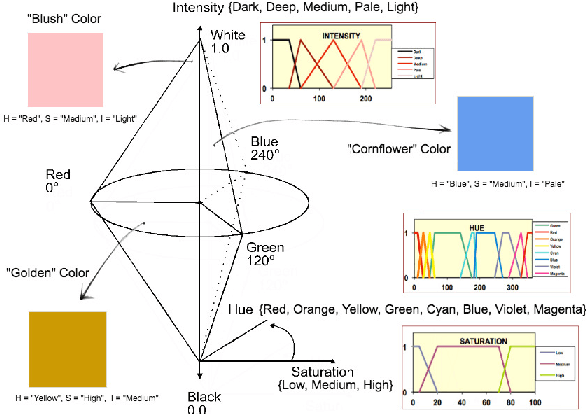Towards a Universal Understanding of Color Harmony: Fuzzy Approach
Paper and Code
Oct 01, 2023



Harmony level prediction is receiving increasing attention nowadays. Color plays a crucial role in affecting human aesthetic responses. In this paper, we explore color harmony using a fuzzy-based color model and address the question of its universality. For our experiments, we utilize a dataset containing attractive images from five different domains: fashion, art, nature, interior design, and brand logos. We aim to identify harmony patterns and dominant color palettes within these images using a fuzzy approach. It is well-suited for this task because it can handle the inherent subjectivity and contextual variability associated with aesthetics and color harmony evaluation. Our experimental results suggest that color harmony is largely universal. Additionally, our findings reveal that color harmony is not solely influenced by hue relationships on the color wheel but also by the saturation and intensity of colors. In palettes with high harmony levels, we observed a prevalent adherence to color wheel principles while maintaining moderate levels of saturation and intensity. These findings contribute to ongoing research on color harmony and its underlying principles, offering valuable insights for designers, artists, and researchers in the field of aesthetics.
 Add to Chrome
Add to Chrome Add to Firefox
Add to Firefox Add to Edge
Add to Edge